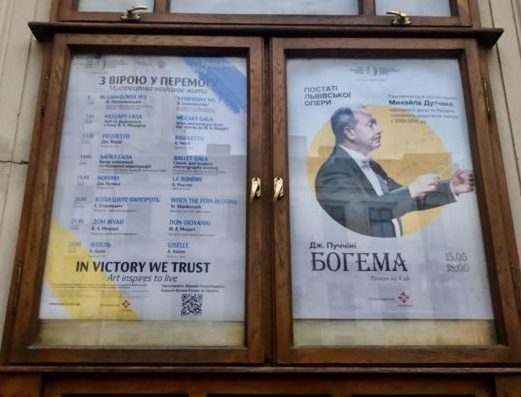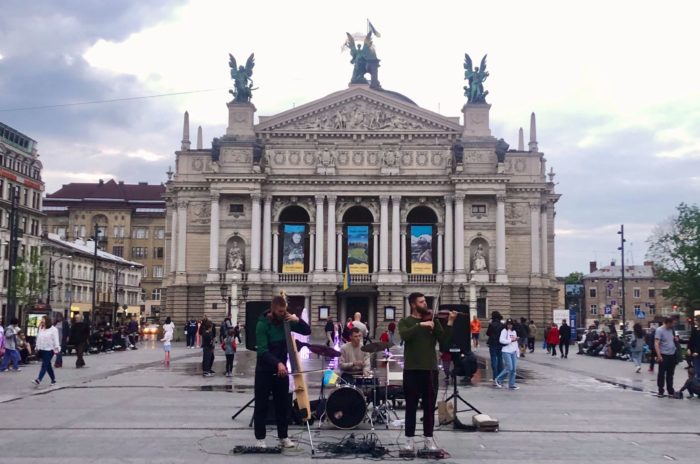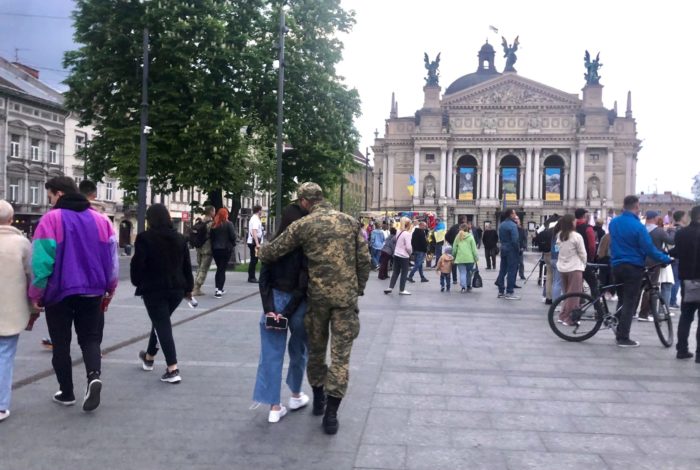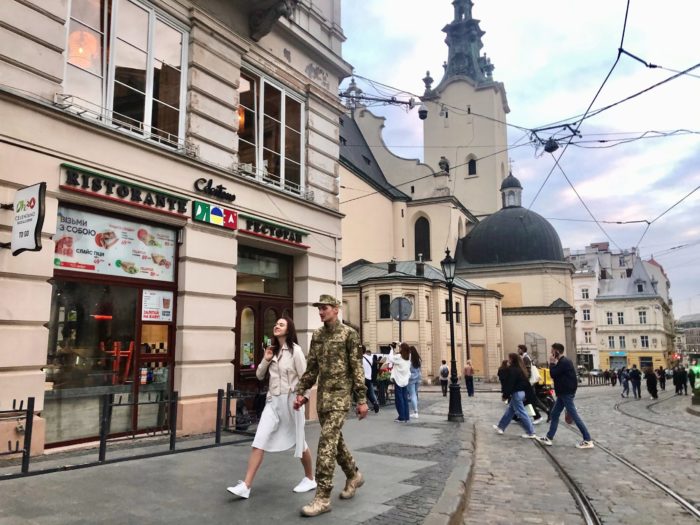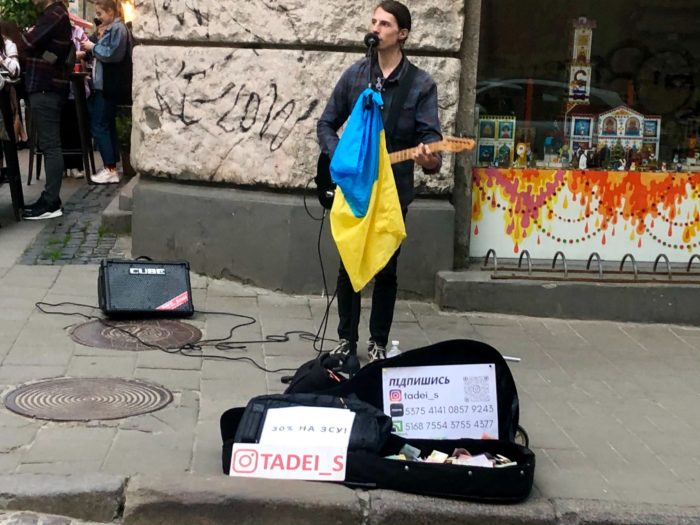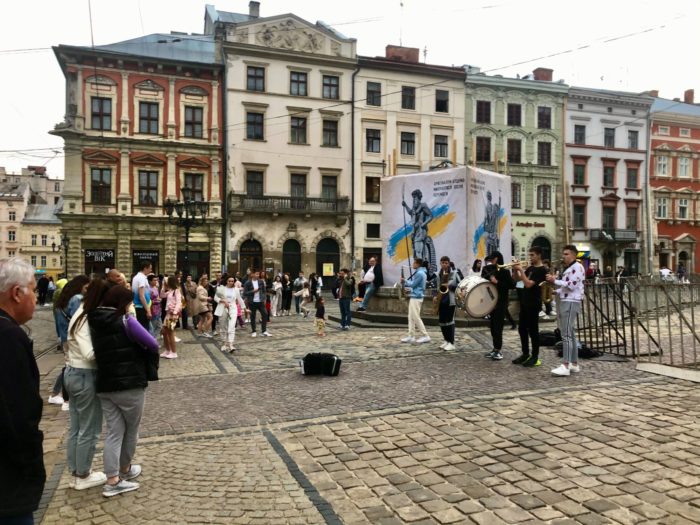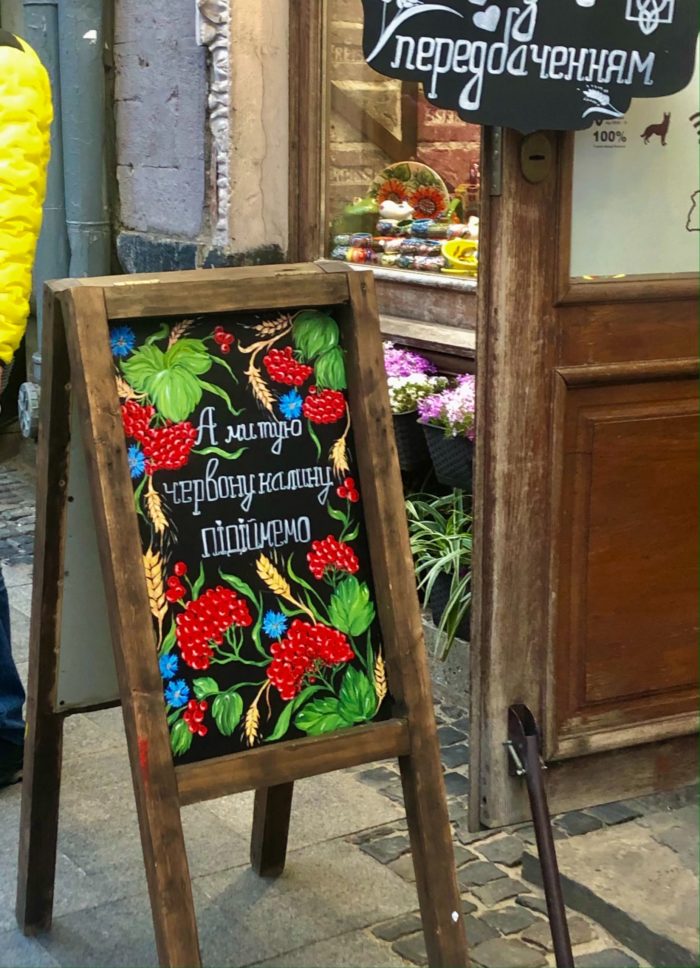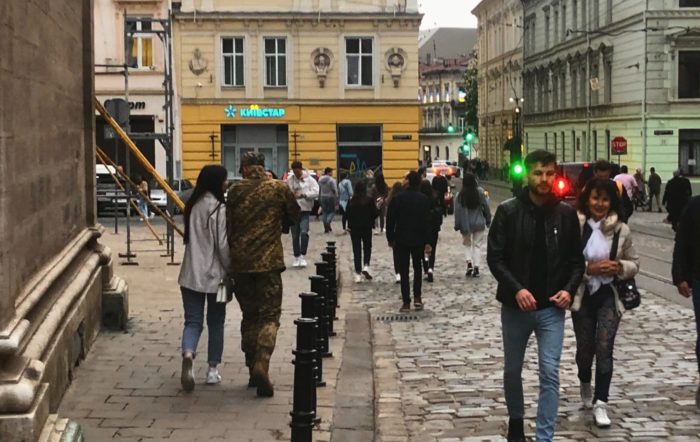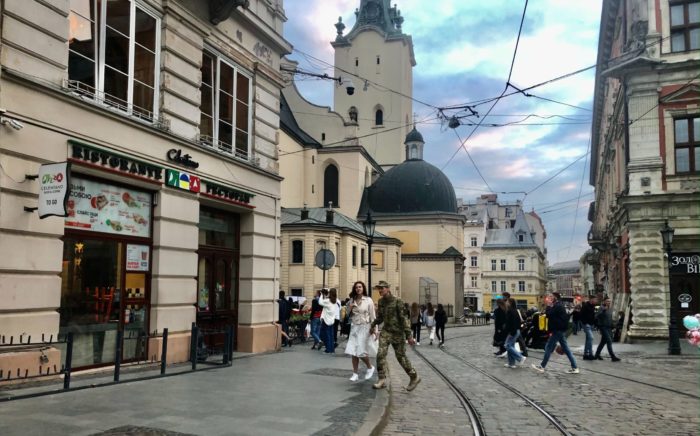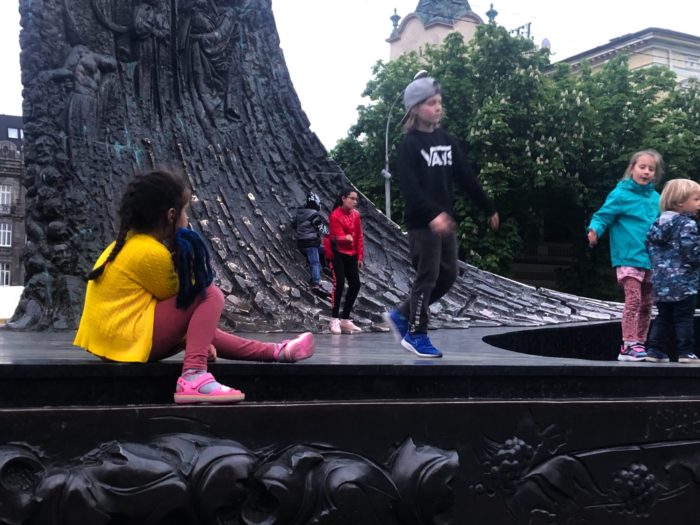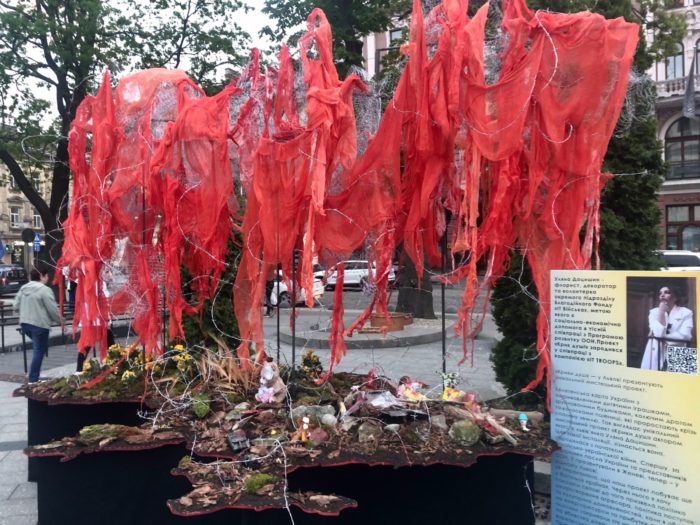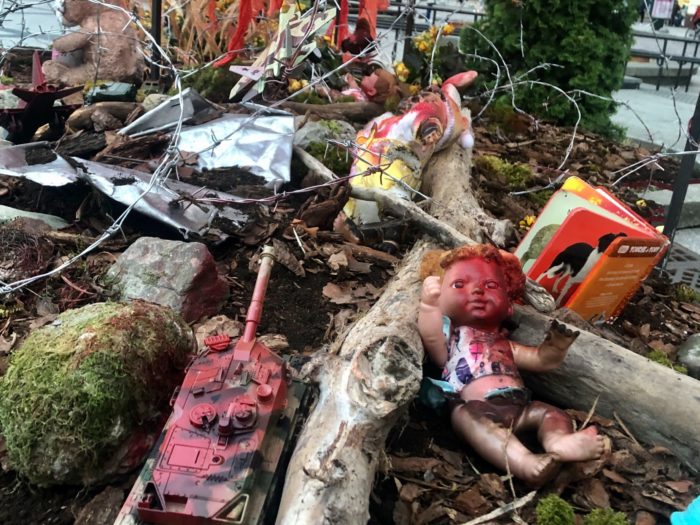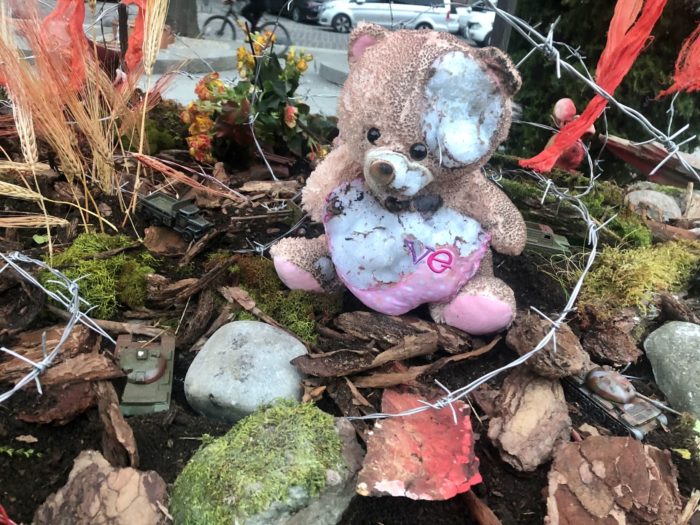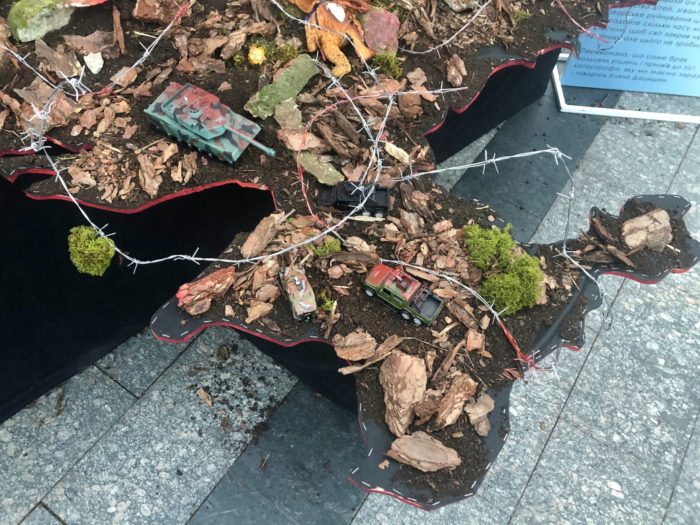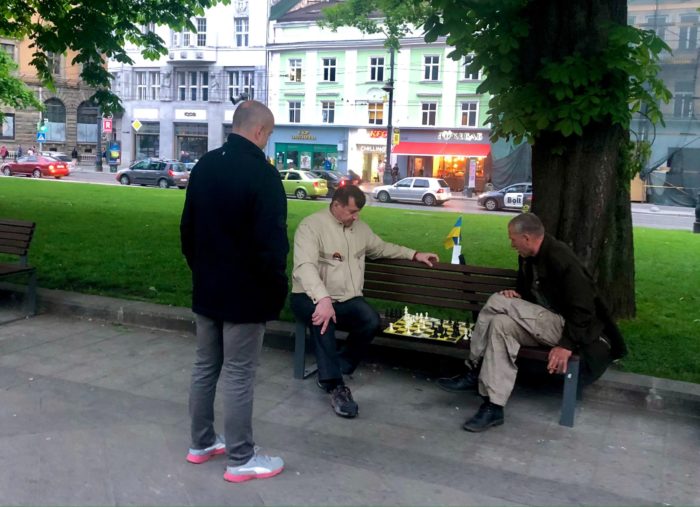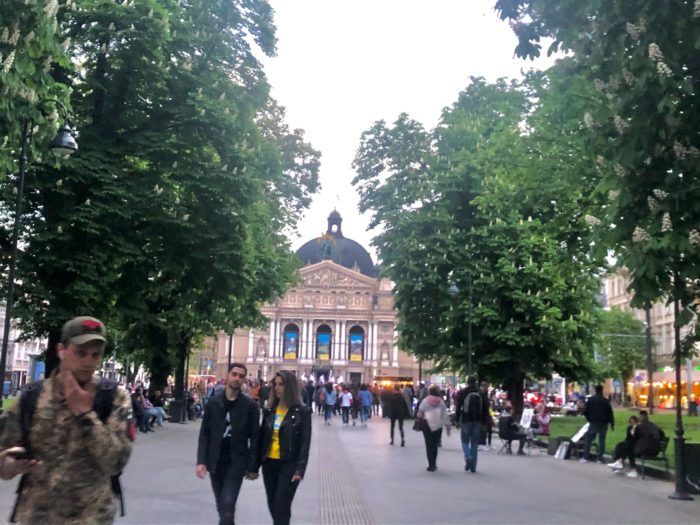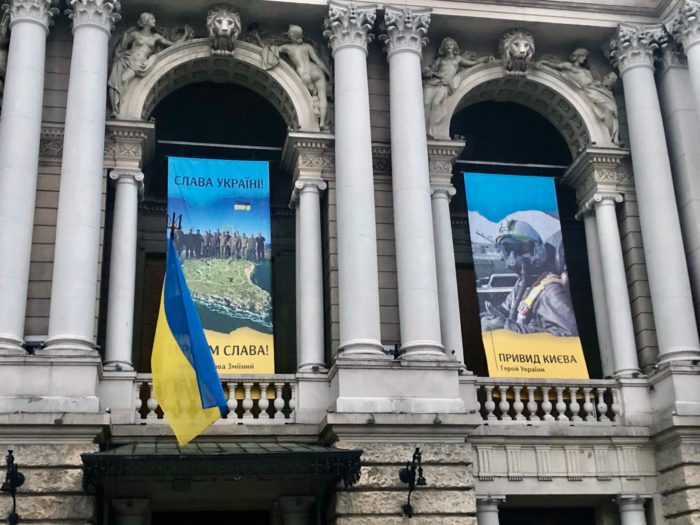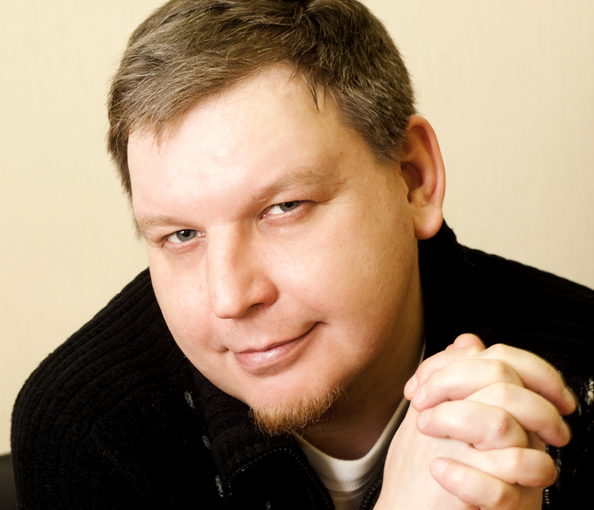"Art for victory," reads the inscription in front of this street musician. Meanwhile, he sings about the war in Ukraine, apparently his own songs. Behind him is a statue of Amphitrite, which local activists wrapped against possible shelling in the early days of the large-scale war. Now the statue is behind the banner that reads "We'll admire the original after the victory."
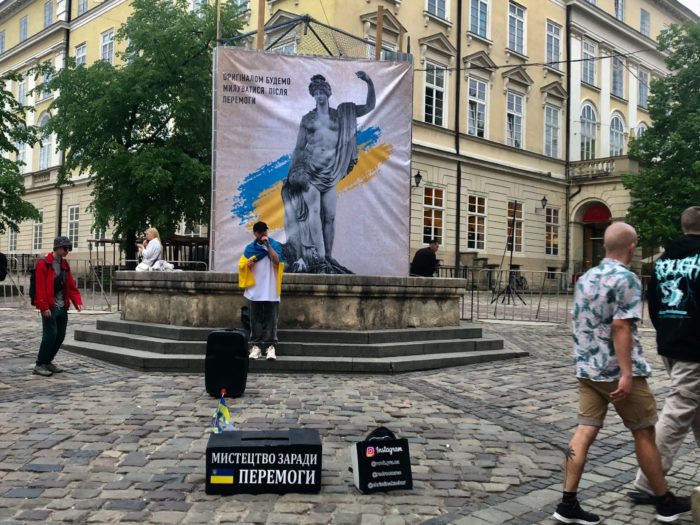
Preparing for the possible Russian air bombardment, people in Lviv try to preserve the most valuable sculptures, stained glass, and other sites that belong to the UNESCO heritage area. pic.twitter.com/L1n0i9Vxmi
— Euromaidan Press (@EuromaidanPress) March 4, 2022
Further down the street, we see street musicians with signs that say "30% for the AFU [Armed Forces of Ukraine]" or "10% for the AFU." While we pass, the guitarist sings the sad song "She" by the popular Ukrainian band Plach Yeremiyi [translated as Lamentations of Jeremiah]: "But the autumn will come soon, and we all break up in Russified cities." The words make one think about how much has changed since 1997 when the song was released – especially now when decolonization processes in Ukraine have drastically intensified after the onset of Russia's large-scale war and genocidal acts in Ukraine.
The Ukrainian song that has perhaps gained the most popularity after 24 February 2022 is "Oh in the meadow red kalyna." The line from this song "And we will this red kalyna rise up" is seen on one of the signs near the shop.
People in military uniforms can often be seen around the city. Lviv is not only the hub for volunteer centers but also a place where many soldiers are trained before going to the frontline.
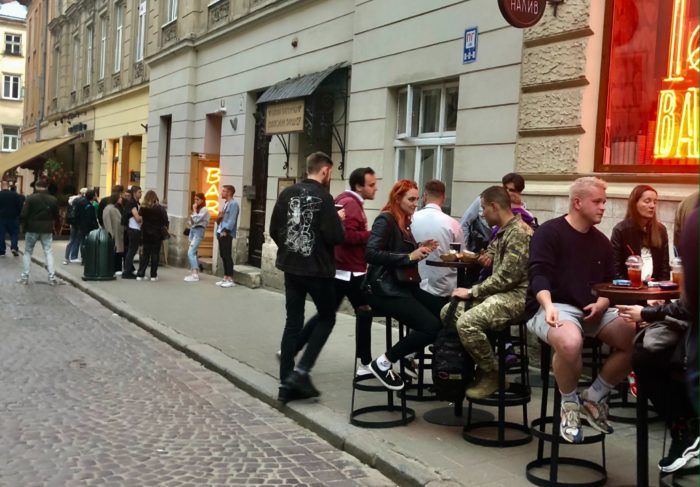
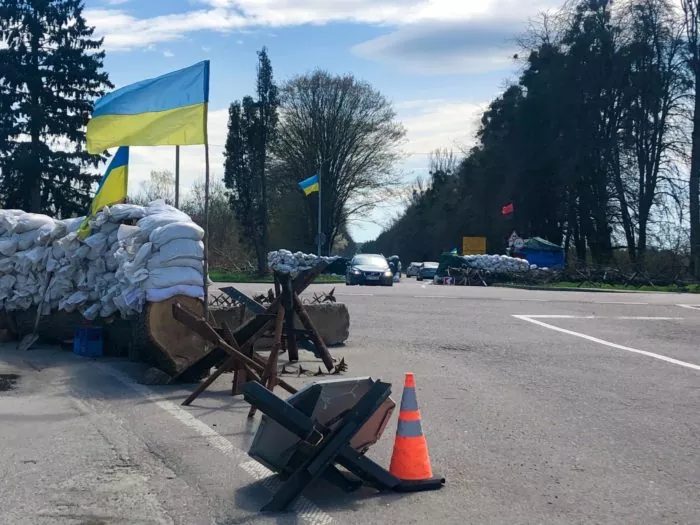
At the end of Liberty Avenue [Svobody Avenue], near the monument of Taras Shevchenko, children play on a giant map symbolizing the history of Ukraine, lilacs and chestnuts bloom, and musicians sing…
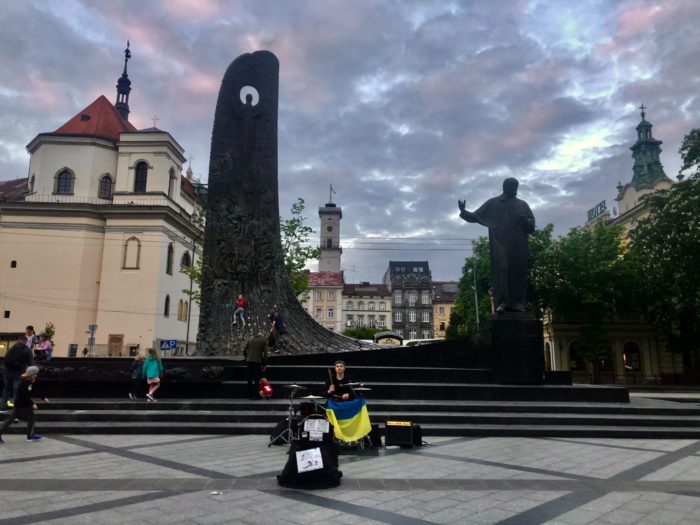
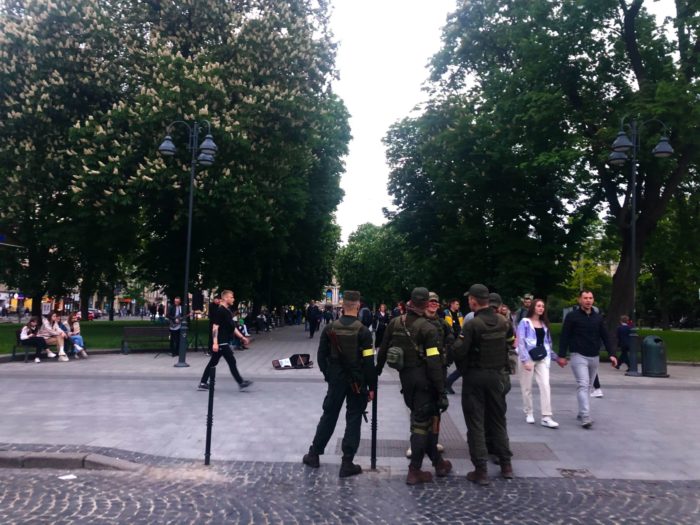
Here, however, we also see the installation of a giant map of Ukraine adorned with bloody children's toys, destroyed houses, barbed wire, and ears of wheat sprouting through the scorched earth. There are more sprouts of wheat in the west of the country where Russian soldiers did not penetrate and more bloody toys in the temporarily occupied territories of Ukraine. The descriptive plaque explains that the work by volunteer artist and florist Uliana Datsyhyn was originally displayed in Geneva, and now the installation about the war is on display in Lviv.
"I am convinced that our project will visit many more countries. Through it, I want to show the world the consequences of the policy of appeasing the aggressor, the policy of concessions and backstage agreements, when in exchange for energy sources and profits, European politicians turned a blind eye to the murder of Ukrainians, the rape of women, and the barbaric destruction of entire cities," Uliana Datsyhyn says.
We are finally approaching the opera house. The benches here are a traditional place for avid chess players. They never stopped organizing their impromptu tournaments.
While the shooting range with Putin's images became a new form of entertainment for the townspeople, the Lviv Opera House has opened after a break because of the war and invites visitors to its performances.
